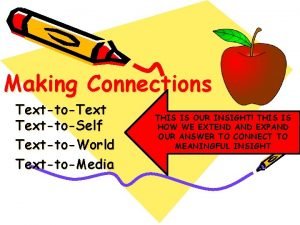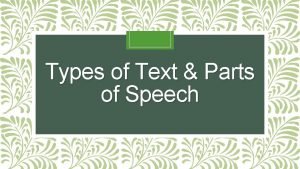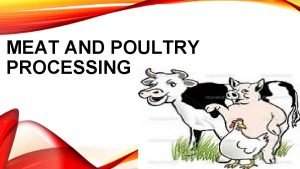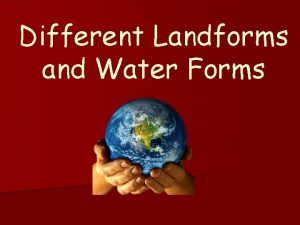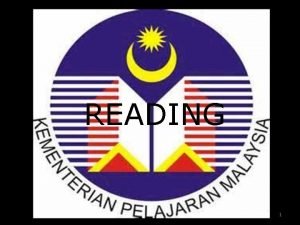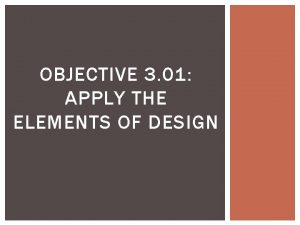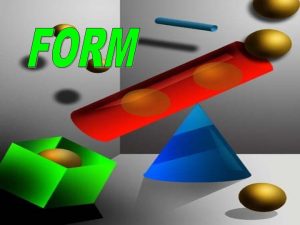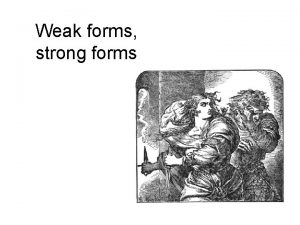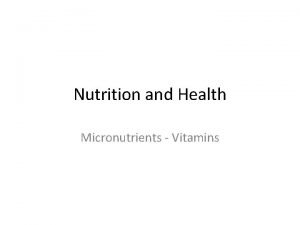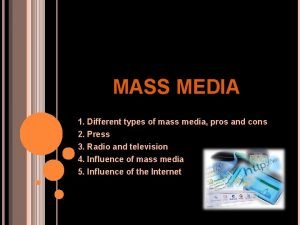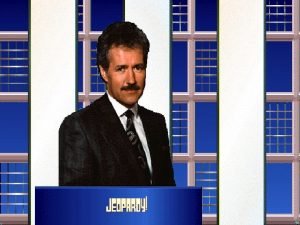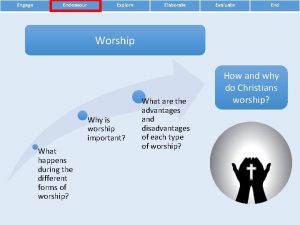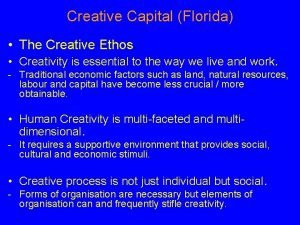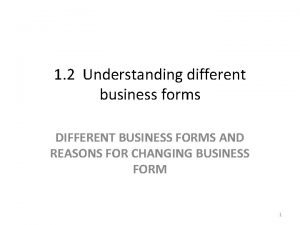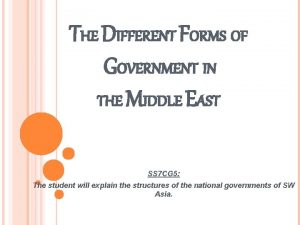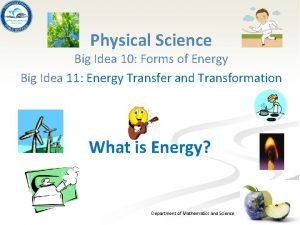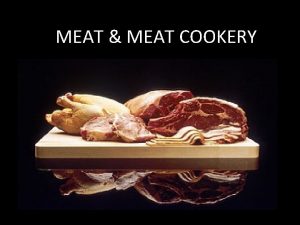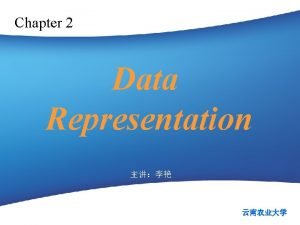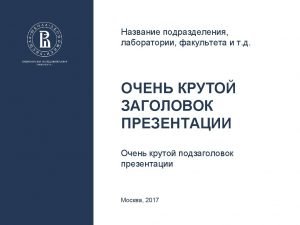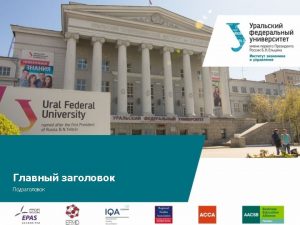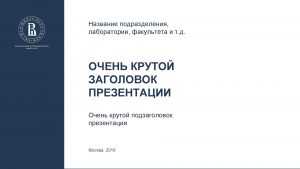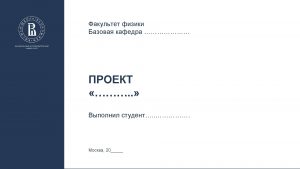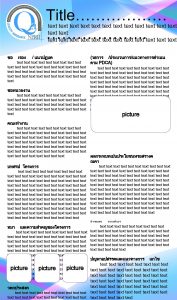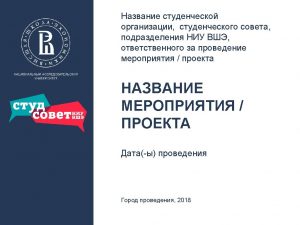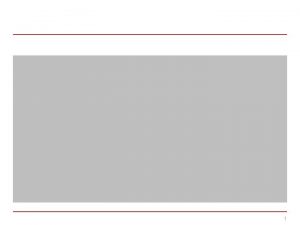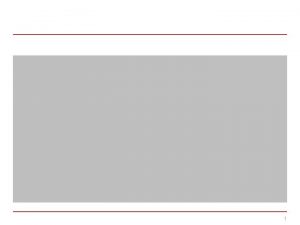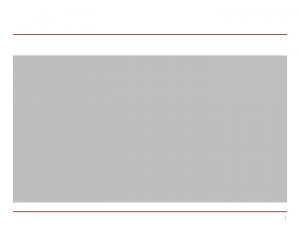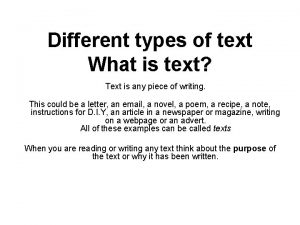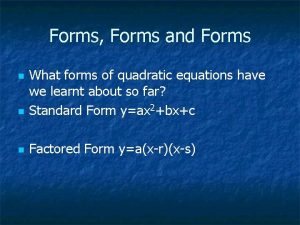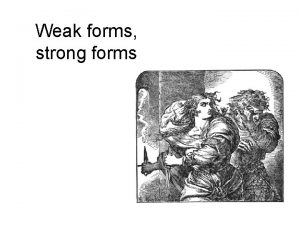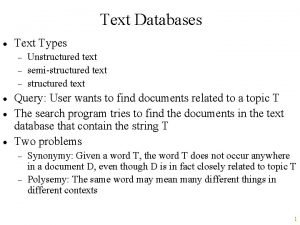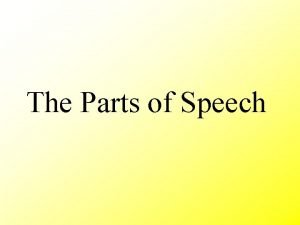Types of Text Parts of Speech Different Forms






















- Slides: 22

Types of Text & Parts of Speech

Different Forms of Text 1. Fictional Text: • Text that is based in the world of imagination (i. e. not real). 2. Non-Fictional Text: • Text that is based on the real world and factual information or events. • May utilize or involve characters. 3. Informational Text: • Informs the reader about the natural (scientific) or social world. • Does not utilize or involve characters. 4. Expository Text: • Clear, concise, organized writing that explains and educates the reader about something.

Different Forms of Text 5. Analytical Text: • Typically a response to a question or topic that argues a particular point of view in regard to a text being studied. 6. Persuasive Text: • Any text where the main purpose is to present a point of view and seeks to persuade the reader. • Typically written as an argument, exposition, discussion, review, or advertisement.

Analytical Essay • An essay that analyzes and interprets a work of literature by using specific examples from the text to build a logical argument beyond a summary or simple description of the work.

Summary & Synopsis • Summary: • A brief statement or account of the main points of something. • Example: Up (2009) • Carl Fredricksen is a little boy and a dreamer who idolizes the adventurer Charles Muntz. When he meets Ellie, who also worships Muntz, they become close friends. However Charles Muntz falls into disgrace, accused of forging the skeleton of the monster of Paradise Falls. He travels in his blimp to South America to bring the monster back alive but is never seen again. Eventually Carl grows up and marries Ellie. They promise each other that they would travel together to Paradise Falls and build a house there. Many years later, Ellie dies and Carl, who's lonely, refuses to move from their house despite the offers of the owner of a construction company. When Carl accidentally hits a worker that damaged his mailbox, he is sentenced to move to a retirement home. However, he uses many balloons to float his house in order to travel to Paradise Falls. Adventure ensues. • Synopsis: • A longer summary.

Interpretation • To give one’s own conception of something (e. g. a work of art, book, or performance). • To construe or understand something in a particular way. • Example: What the author meant: “The curtains were just the color blue. ”

Critique • The study, evaluation, and interpretation of literature or other work.

Substantiated & Unsubstantiated • Substantiated: Something (such as a claim, accusation, or story) that has been proved to be valid, true, verified, or confirmed. • Unsubstantiated: Something (such as a claim, accusation, or story) that has not been proved to be valid, true, verified, or confirmed.

Message • Simply a synonym for “theme”: • A main idea or underlying meaning of a literary work. • An important idea that someone is trying to express in a book, movie, speech, etc. • The “moral” of the story.

Relationships & Connection • The way in which two or more people or things are connected.

Parts of Speech • A category to which a word is assigned in accordance with its syntactic functions. 1. 2. 3. 4. 5. 6. 7. 8. Noun Pronoun Verb Adverb Adjective Conjunction Preposition Interjection

Nouns and Pronouns • Noun: • A person, place, thing, or idea. • Examples: • • Teacher Europe Toaster A bird flew into the clouds.

Nouns and Pronouns • Pronoun: • A word that takes the place of a noun. • Examples:

Verbs and Adverbs • Verb: • Expresses actions or states of being. • Examples: • The shuttle flew into space. • He swims every day. • She talks way too much and barely listens.

Verbs and Adverbs • Adverb: • Modifies or describes verbs. • Examples: • She ran down the hallway quickly. • He stopped talking suddenly after realizing his parents heard the whole conversation. • He slammed his fist into the wall very forcefully.

Adjectives and Conjunctions • Adjective: • Describes or modifies nouns or pronouns. • Examples: • Her beautiful dress was all anyone could focus on. • The wise teacher always knew the right thing to do. • The athletes were tall and strong.

Adjectives and Conjunctions • Conjunction: • Joins two or more words, phrases, or clauses.


Prepositions and Interjections • Preposition: • Shows the relationship between a noun or pronoun and some other word in the rest of the sentence.


Prepositions and Interjections • Interjection: • Expresses excitement or emotion. • Examples: • Wow! That was amazing! • Congratulations! You won! • I am so happy for you!

Syntax • The arrangement and sequence of words in sentences, phrases, and clauses.
 Making connections images
Making connections images Different forms of text
Different forms of text Market forms and cuts of poultry
Market forms and cuts of poultry Landforms water forms
Landforms water forms Instructive text types
Instructive text types Different types of text
Different types of text Linear and nonlinear text
Linear and nonlinear text Why are related forms more agreeable than unrelated forms?
Why are related forms more agreeable than unrelated forms? Negative long form
Negative long form Why are related forms more agreeable than unrelated forms
Why are related forms more agreeable than unrelated forms Why are related forms more agreeable than unrelated forms?
Why are related forms more agreeable than unrelated forms? Strong forms
Strong forms What are vitamins functions
What are vitamins functions 7 types of mass media
7 types of mass media Different forms of linear equations
Different forms of linear equations Lobster market form
Lobster market form Types of prayers
Types of prayers Different forms of creativity
Different forms of creativity Understanding different business forms
Understanding different business forms Different forms of government
Different forms of government Big idea of energy transfer
Big idea of energy transfer Meat cookery
Meat cookery Each set of bit pattern is called
Each set of bit pattern is called
